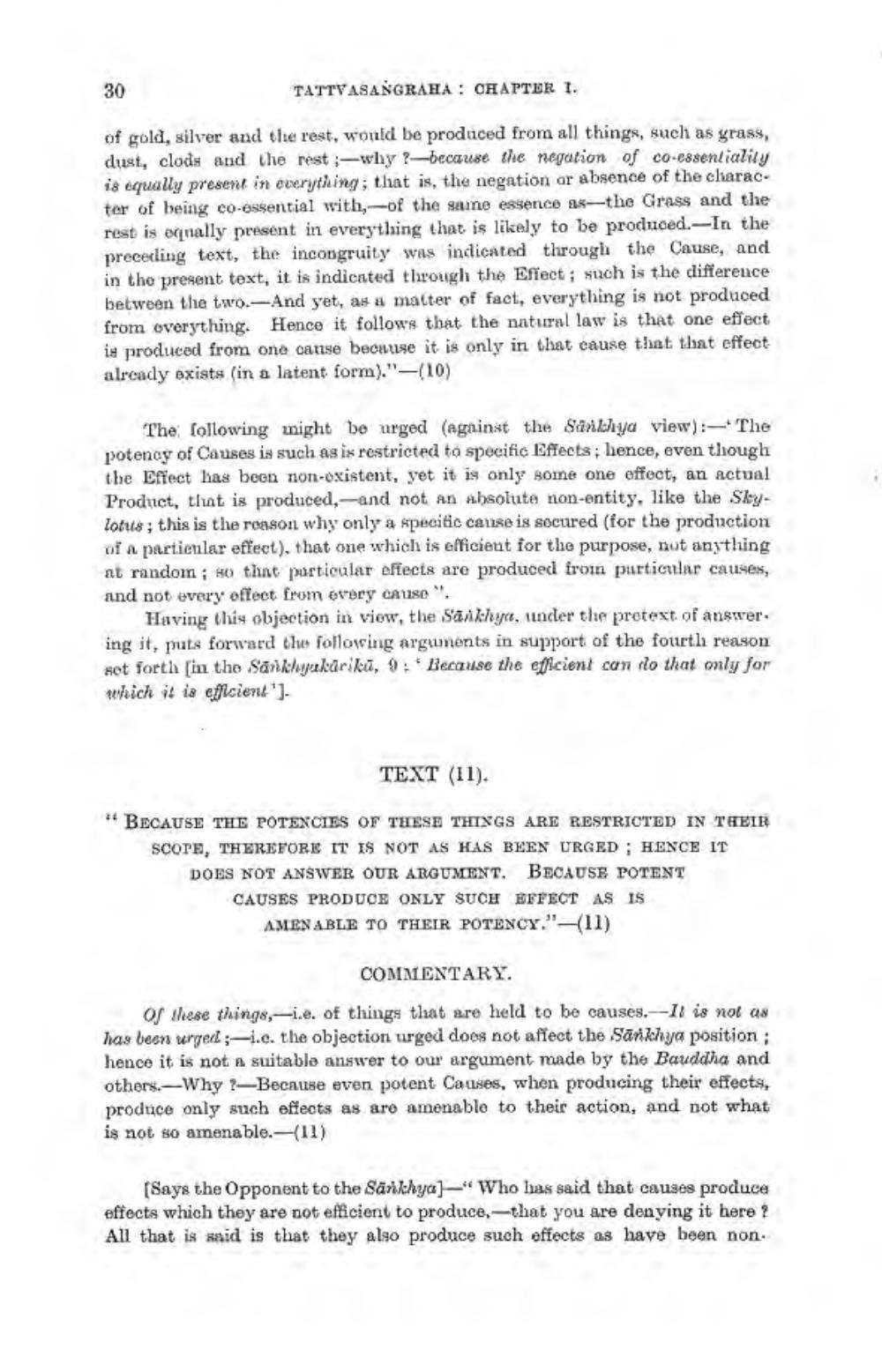________________
30
TATTVASANGRAHA: CHAPTER 1.
of gold, silver and the rest, would be produced from all things, such as yrass, dust, clods and the rest ;-why ?-because the negation of co-essentiality is equally present in everything; that is, the negation or absence of the character of being co-essential with,-of the same essence as-the Grass and the rest is equally present in everything that is likely to be produced. - In the preceding text, the incongruity was indicated through the Cause, and in the present text, it is indicated through the Effect; such is the difference between the two.-And yet, as a matter of fact, everything is not produced from overything. Hence it follows that the natural law is that one effect is produced from one canse because it is only in that cause that that effect already exists (in a latent form)."-(10)
The following might be urged (against the Sandhya view): The potency of Causes is such as is restricted to specific Effects; hence, even though the Effect has beon non-existent, yet it is only some one effect, an actual Product, that is produced, -and not an absolute non-entity, like the Skylotus ; this is the reason why only a specific canse is socured (for the production of a partienlar effect), that one which is efficient for the purpose, nut anything at random ; ho that particular effects are produced froin purticular causes, and not every effect from every cause"
Having this objection in view, the Sankhyat, under the pretext of answer ing it, puts forward the following arguments in support of the fourth reason Het forth in the Sankhyukariku, 9 : Because the efficient can so that only for which it is efficient").
TEXT (11).
** BECAUSE THE POTENCIES OF THESE THIXGS ARE RESTRICTED IN THEIR SCOPE, THEREFORE IT IS NOT AS HAS BEEN URGED; HENCE IT DOES NOT ANSWER OUR ABGUMENT. BECAUSE POTENT CAUSES PRODUCE ONLY SUCH EFFECT AS IS
AMEN ABLE TO THEIR POTENCY."-(11)
COMMENTARY.
of these things,-i.e. of things that are held to be causes.--II is not as has been urger ;-.e. the objection urged does not affect the Sanichya position ; hence it is not a suitable answer to our argument made by the Bauddha and others.-Why ?-Because even potent Causes, when producing their effects, produce only such effects as are amenable to their action, and not what is not so amenable.-11)
(Says the Opponent to the Sankhya]"Who has said that causes produce effects which they are not efficient to produce,- that you are denying it here? All that is said is that they also produce such effects as have been non




